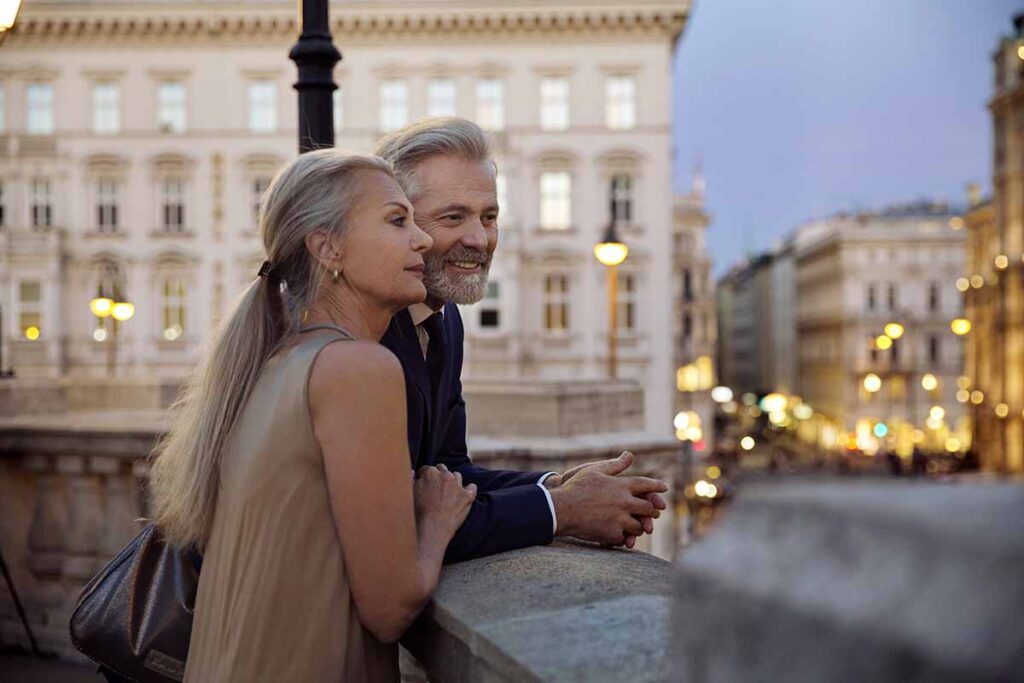
“Tourism isn’t just about leisure and recreation. It could also contribute to people’s physical and mental health,” says researcher who believes travel could help slow the aging process
Researchers from Edith Cowan University (ECU) believe leisure travel could be a way to slow the aging process. An interdisciplinary study applying the theory of entropy to tourism suggests that travel could have positive health benefits, including slowing down the signs of aging.
Entropy, according to a press release, is classified as “the general trend of the universe towards death and disorder. The entropy perspective suggests that tourism could trigger entropy changes, where positive experiences might mitigate entropy increase and enhance health, while negative experiences may contribute to entropy increase and compromise health.”
PhD candidate Fangli Hu said in a statement: “Aging, as a process, is irreversible. While it can’t be stopped, it can be slowed down.” Hu added that positive travel experiences could enhance physical and mental health through exposure to novel environments, engagement in physical activities and social interaction, and the fostering of positive emotions. “Tourism isn’t just about leisure and recreation. It could also contribute to people’s physical and mental health,” Hu said.
Enhancing the body’s self-defense systems
Though the “study” appears to be entirely theoretical, it has gotten a lot of attention, including from outlets like CNN and the Washington Post. The idea is that travel therapy could serve as a health intervention when viewed through an “entropy lens.” Positive travel experiences may help the body sustain a low-entropy state, as tourism exposes people to new surroundings and novel settings that could theoretically stimulate stress responses and positively influence metabolic activities and the body’s “self-organizing capabilities.” These contexts may trigger “an adaptive immune system response.” And this makes the body better able to defend itself.
“Put simply,” said Hu, “the self-defense system becomes more resilient. Hormones conducive to tissue repair and regeneration may be released and promote the self-healing system’s functioning.”
Travel often includes physical activities like hiking, climbing, walking, and cycling, and this physical exertion can boost metabolism, energy expenditure, and material transformation, which Hu says helps coordinate self-organizing systems.
“Participating in these activities could enhance the body’s immune function and self-defense capabilities, bolstering its hardiness to external risks. Physical exercise may also improve blood circulation, expedite nutrient transport, and aid waste elimination to collectively maintain an active self-healing system. Moderate exercise is beneficial to the bones, muscles, and joints in addition to supporting the body’s anti-wear-and-tear system,” Hu said. All of this could help maintain the body’s metabolic balance and increase the anti-wear-and-tear system’s effectiveness and organs and tissues could then remain in a “low-entropy state,” Hu said.
Travel has positive impact on health and longevity
Previous research findings support the idea that travel can improve health, both mental and physical. Studies have found, for example that:
- Women who vacation at least twice a year show a significantly lower risk of suffering a heart attack or coronary death compared with women who vacationed every six years or less.
- Men who don’t take an annual vacation show a 20% higher risk of death and 30% higher risk of heart disease than those who do.
- Three days after taking a vacation, travelers report feeling less anxious, more rested and in a better mood. These benefits may linger for weeks after the trip has ended.
- People experience an increase in happiness from just planning a trip.
- Rural women who take vacations twice a year are less likely to become tense, depressed, or tired, and are more satisfied with their marriage than those who vacation less than once every two years.
Spa Executive is published by Book4Time, the leader in guest management, revenue and mobile solutions for the most exclusive spas, hotels, and resorts around the globe. Learn more at book4time.com.



